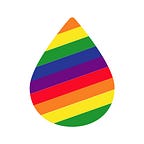Safety is the top priority.
And, so, to ensure the safety of both plasma donors and patients who rely on them, first, plasma donors are screened for transmittable diseases whenever they attempt to donate.
And second, the plasma collected from them is put through a variety of rigorous tests until it is transformed into life-saving plasma therapies.
However, in the US, clinical lab tests which involve human samples can only be conducted after permits corresponding to those tests are procured by the labs.
This is the Clinical Laboratory Improvement Amendments (CLIA).
These are a set of amendments that require any laboratory accepting human samples for diagnostic testing to be certified by the Center for Medicare and Medicaid Services (CMS).
CLIA certificates vary depending on the kind of test being conducted. The initiative was a product of three major agencies: The Food and Drug Administration (FDA), Center for Medicare and Medicaid Services (CMS), and the Centers for Disease Control and Prevention (CDC).
Each agency plays several unique roles to ensure high-quality, safe, and effective clinical testing.
The different types of CLIA certificates
Generally, the certificates are effective for two years.
1. Certificate of Waiver: issued only for waived tests — tests that are simple and have an insignificant risk of an erroneous result
2. Certificate for Provider-performed Microscopy (PPM) procedures: issued for microscopy procedures performed during a patient’s visit
3. Certificate of Registration: issued to allow a lab to conduct moderate to complex tests (non-waived). The tests cannot be conducted until CMS surveyors inspect and approve of the lab.
4. Certificate of Compliance: issued when CMS surveyors find the lab to be CLIA-compliant. Once received, the lab can proceed with conducting moderate to complex tests.
5. Certificate of Accreditation: issued based on the lab’s accreditation by an accreditation organization approved by CMS, such as the American Association for Laboratory Accreditation (A2LA)
The exceptions
That said, some labs are exempt from CLIA-compliance.
These are,
- Labs conducting tests for forensic purposes
- Labs that test human specimens but the results of which do not inform any patient’s diagnosis or treatment
- Labs certified by the Substance Abuse and Mental Health Services Administration (SAMHSA), engaging in tests that meet SAMHSA’s guidelines
In other words, it’s the purpose of the test that warrants a certificate, and not the test itself.
Lastly, all states engaging in tests that collect human samples must be issued CLIA certificates. Except for New York and Washington, who have their own approved programs.
Learn more about plasma. Visit www.iplasma.life
